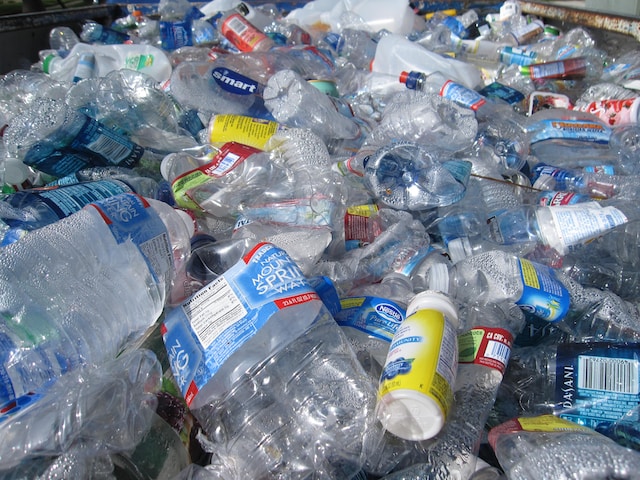Polymers are essential in everyday life, from plastic bottles and clothing made from synthetic fibres to advanced materials used in aerospace, medicine, and electronics. Their versatility makes them a critical component of modern materials science and technology.
The most common polymer in terms of everyday use and production is polyethylene used to make plastic bags, containers, pipes, and toys. Its popularity is due to its chemical resistance, durability, and flexibility, yet its non-biodegradable nature has posed massive environmental challenges for as long as we can remember.

A team at Rice University in Houston, Texas, have discovered an economical method to generate hydrogen without emitting CO2 by rapidly heating household waste plastics.
However, a recent development has emerged from a team at Rice University in Houston, Texas. They have discovered an economical method to generate hydrogen without emitting CO2 by rapidly heating household waste plastics.
Yet the real genius of this is that as well as producing hydrogen, the process makes high-quality, commercially viable graphene, and the team, lead by James Tour, Professor of Chemistry, Materials Science & Nano Engineering, have calculated that selling that graphene even at 5 per cent of its current market value would mean the hydrogen costs nothing to produce.
“Even at that price, we’re making like $4.30 per kilo on hydrogen, so now hydrogen becomes free,” says Tour. “Your fuel is free while you’re cleaning up the world.”

The most common polymer in terms of everyday use and production is polyethylene used to make plastic bags, containers, pipes, and toys. Its popularity is due to its chemical resistance, durability, and flexibility, yet its non-biodegradable nature has posed massive environmental challenges for as long as we can remember.
The method applies electricity to a blend of waste plastics and a conductive substance, rapidly raising their temperature to approximately 2800°C within an astonishing 4 seconds. As their test material, the team used waste polyethylene, comprising approximately 34% of all plastics and ranking as the most prevalent plastic globally.
The speed of the heating process prompts the carbon atoms in the polyethylene to form graphene. This also results in a gas mixture: 92 percent pure hydrogen and the remaining 8 percent composed of various carbon-based compounds, including methane and propane.
Although these by-products could potentially be marketed independently, Tour and his team observed that higher temperatures and faster heating led to increased graphene and hydrogen production, while minimising the residual compounds.
____________________
Related reading:
The pro American football team kicking carbon into touch with hydrogen
____________________
Once locked into graphene, it is virtually impossible for the carbon to re-enter the Earth’s atmosphere as CO2.
“We know that because we have graphite in the world. If microbes could eat graphite or graphene, which is single sheets of graphite, we wouldn’t have any graphite in the world. But we have graphite mines — it doesn’t decompose rapidly.” says Tour
So far, the team has demonstrated the feasibility of the process in the laboratory. However, a separate company co-established by Tour, called Universal Matter, has successfully used the same heating method to commercially manufacture graphene.
“You could have a smaller-scale deployment for generating hydrogen certainly within five years,” says Tour. “You could have a large-scale deployment within 10.”
Generating hydrogen through this process has great potential to contribute to a future circular economy. However, scientists will need to address a host of technical hurdles before it can be implemented on an industrial scale.
Although the implications for the technology are certainly exciting, moving beyond lab scale, managing large quantities of plastics, gas mixtures, and byproducts like graphene will inevitably pose challenges.
To learn more about Ryze, click here.






